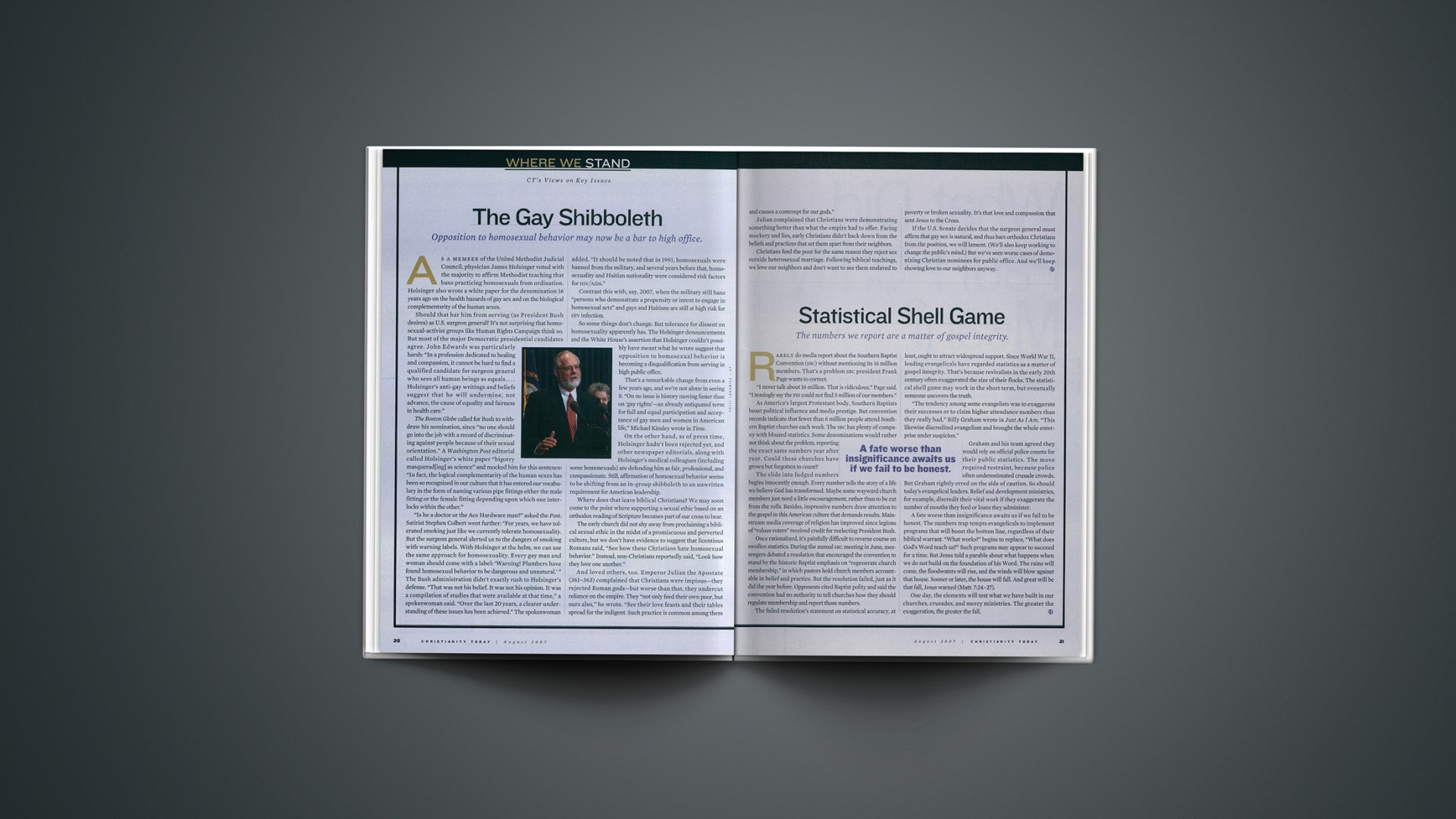Rarely do media report about the Southern Baptist Convention (SBC) without mentioning its 16 million members. That’s a problem SBC president Frank Page wants to correct.
“I never talk about 16 million. That is ridiculous,” Page said. “I teasingly say the FBI could not find 5 million of our members.”
As America’s largest Protestant body, Southern Baptists boast political influence and media prestige. But convention records indicate that fewer than 6 million people attend Southern Baptist churches each week. The SBC has plenty of company with bloated statistics. Some denominations would rather not think about the problem, reporting the exact same numbers year after year. Could these churches have grown but forgotten to count?
The slide into fudged numbers begins innocently enough. Every number tells the story of a life we believe God has transformed. Maybe some wayward church members just need a little encouragement, rather than to be cut from the rolls. Besides, impressive numbers draw attention to the gospel in this American culture that demands results. Mainstream media coverage of religion has improved since legions of “values voters” received credit for reelecting President Bush.
Once rationalized, it’s painfully difficult to reverse course on swollen statistics. During the annual SBC meeting in June, messengers debated a resolution that encouraged the convention to stand by the historic Baptist emphasis on “regenerate church membership,” in which pastors hold church members accountable in belief and practice. But the resolution failed, just as it did the year before. Opponents cited Baptist polity and said the convention had no authority to tell churches how they should regulate membership and report those numbers.
The failed resolution’s statement on statistical accuracy, at least, ought to attract widespread support. Since World War II, leading evangelicals have regarded statistics as a matter of gospel integrity. That’s because revivalists in the early 20th century often exaggerated the size of their flocks. The statistical shell game may work in the short term, but eventually someone uncovers the truth.
“The tendency among some evangelists was to exaggerate their successes or to claim higher attendance numbers than they really had,” Billy Graham wrote in Just As I Am. “This likewise discredited evangelism and brought the whole enterprise under suspicion.”
Graham and his team agreed they would rely on official police counts for their public statistics. The move required restraint, because police often underestimated crusade crowds. But Graham rightly erred on the side of caution. So should today’s evangelical leaders. Relief and development ministries, for example, discredit their vital work if they exaggerate the number of mouths they feed or loans they administer.
A fate worse than insignificance awaits us if we fail to be honest. The numbers trap tempts evangelicals to implement programs that will boost the bottom line, regardless of their biblical warrant. “What works?” begins to replace, “What does God’s Word teach us?” Such programs may appear to succeed for a time. But Jesus told a parable about what happens when we do not build on the foundation of his Word. The rains will come, the floodwaters will rise, and the winds will blow against that house. Sooner or later, the house will fall. And great will be that fall, Jesus warned (Matt. 7:24-27).
One day, the elements will test what we have built in our churches, crusades, and mercy ministries. The greater the exaggeration, the greater the fall.
Copyright © 2007 Christianity Today. Click for reprint information.
Related Elsewhere:
The Washington Post and others published a Religion News Service article about church membership rolls and the problems with finding accurate information.
Books and Culture‘s “Evangelicals Behaving Badly with Statistics” also addressed the issue of integrity with numbers.
Previous editorials are available on our site.










